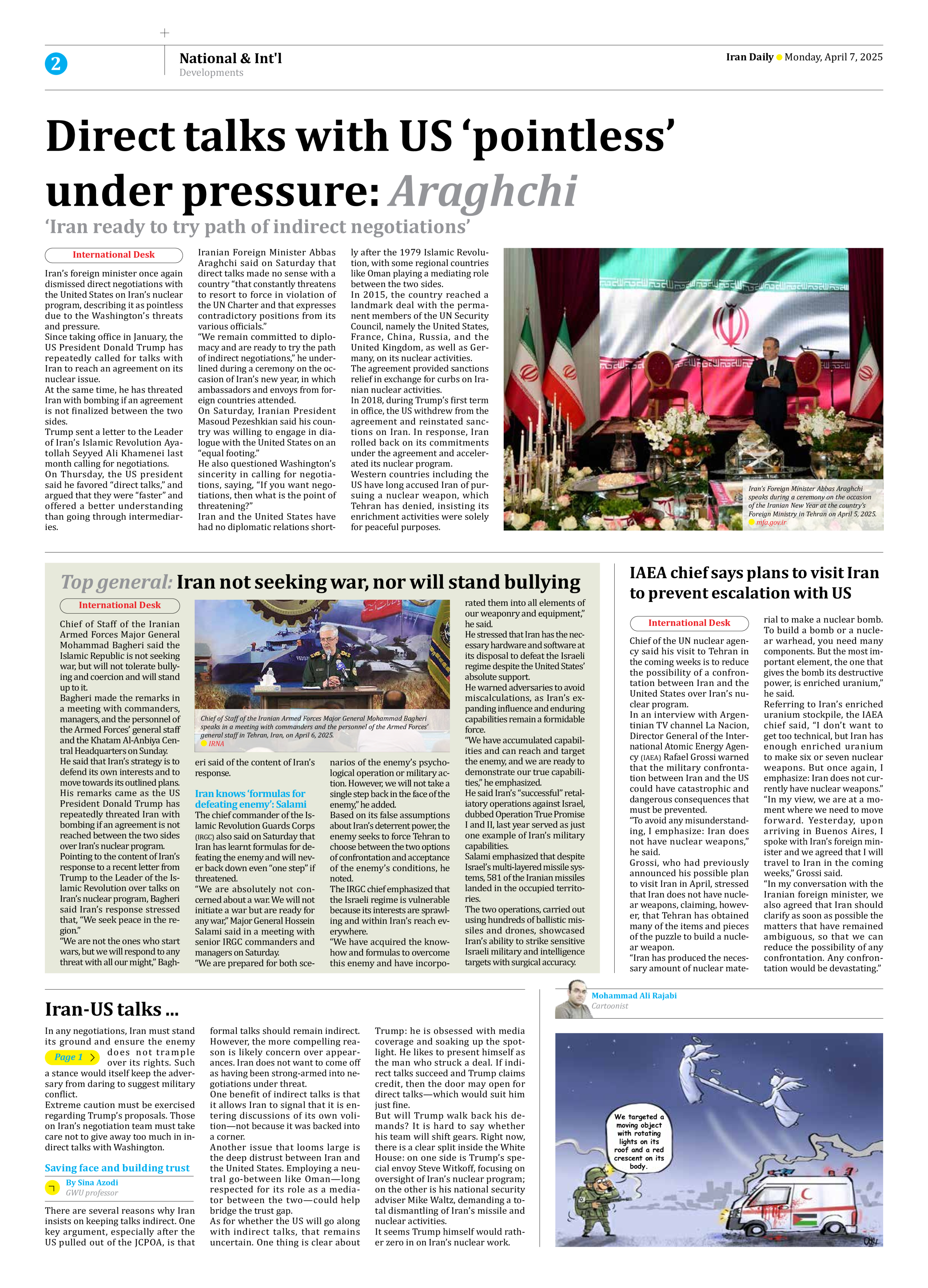
Iran-US talks ...
Page 1
By Sina Azodi
GWU professor
In any negotiations, Iran must stand its ground and ensure the enemy does not trample over its rights. Such a stance would itself keep the adversary from daring to suggest military conflict.
Extreme caution must be exercised regarding Trump’s proposals. Those on Iran’s negotiation team must take care not to give away too much in indirect talks with Washington.
Saving face and building trust
There are several reasons why Iran insists on keeping talks indirect. One key argument, especially after the US pulled out of the JCPOA, is that formal talks should remain indirect. However, the more compelling reason is likely concern over appearances. Iran does not want to come off as having been strong-armed into negotiations under threat.
One benefit of indirect talks is that it allows Iran to signal that it is entering discussions of its own volition—not because it was backed into a corner.
Another issue that looms large is the deep distrust between Iran and the United States. Employing a neutral go-between like Oman—long respected for its role as a mediator between the two—could help bridge the trust gap.
As for whether the US will go along with indirect talks, that remains uncertain. One thing is clear about Trump: he is obsessed with media coverage and soaking up the spotlight. He likes to present himself as the man who struck a deal. If indirect talks succeed and Trump claims credit, then the door may open for direct talks—which would suit him just fine.
But will Trump walk back his demands? It is hard to say whether his team will shift gears. Right now, there is a clear split inside the White House: on one side is Trump’s special envoy Steve Witkoff, focusing on oversight of Iran’s nuclear program; on the other is his national security adviser Mike Waltz, demanding a total dismantling of Iran’s missile and nuclear activities.
It seems Trump himself would rather zero in on Iran’s nuclear work.







